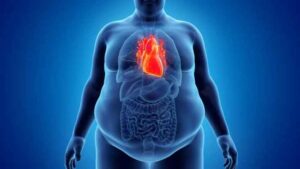RMR vs TDEE: a simple guide to set calories
If you’ve ever asked “why am I not losing weight at this calorie target,” you probably need a clearer picture of RMR vs TDEE. Most
Your Health
We give you the science behind metabolism so you can take back your health, lose weight, and meet your goals.
If you’ve ever asked “why am I not losing weight at this calorie target,” you probably need a clearer picture of RMR vs TDEE. Most

I like trying new training tricks. But some trends are more trouble than they are worth. In this guide I break down fitness fads that
Understanding Metabolism Metabolism is the sum of all chemical reactions that happen in your body to keep you alive. It’s how you turn food into
What is Metabolism? Metabolism refers to the biochemical processes that occur within every living organism – including humans – to maintain life. These processes allow

Metabolism encompasses the intricate web of chemical reactions that occur within living organisms to sustain life. These reactions are essential for converting food into energy,

Introduction In today’s modern society, weight gain has become a prevalent issue, particularly in the United States. Numerous factors contribute to the increasing number of

We are all born with a certain level of metabolic energy or the rate at which our bodies use energy.
The body uses this energy to perform essential functions like breathing and digesting food.
It is also used for every other activity you do throughout the day—whether you’re working, playing sports, sleeping, or doing nothing.
Metabolism is one of the most critical processes in your body because it determines how quickly you burn calories and how much weight you gain over time.
Metabolism is how the body converts food into energy and how fast it does.
In other words, metabolism refers to how quickly your body uses energy. The rate of metabolism varies from person to person, but how does that affect weight loss?
Your metabolism is the process of turning food into energy, and it includes everything from breathing to circulating blood, growing and repairing cells, managing hormone levels, and regulating body temperature.
The speed at which your body converts food into energy depends on various factors, including:
What is the basal metabolic rate (BMR)?
Your basal metabolic rate (BMR) is the amount of energy your body needs to carry out essential bodily functions.
Your BMR fulfills 60% to 70% of your body’s energy. It’s the minimum amount of calories you need daily to sustain life, including breathing and keeping your heart beating.
How does metabolism affect weight?
Metabolism affects weight in several ways: It can speed up or slow down depending on factors like age, gender, and genetics;
it determines how much food you need each day so that you have enough energy for all those bodily processes, and it can also determine how quickly fat cells are broken down into usable muscle fuel or stored as fat for later use.
In addition to these processes, the body uses energy to maintain its temperature, heart rate, and breathing.
It also spends energy on repairing itself and maintaining its immune system. Finally, the body expends energy to keep its nervous system functioning correctly.
The body also uses a small amount of energy for non-essential functions such as digesting food or maintaining muscles.
The metabolism affects how much energy is stored, how much power is burned, and how much weight is lost or gained.
By understanding metabolism, you can better understand why some people can eat whatever they want and stay lean while others struggle with their weight regardless of diet and exercise.
RMR accounts for 60% of total daily calorie expenditure in an average adult; therefore, this component should be factored into any weight loss strategy.
People with a fast metabolism burn more calories to stay alive and have higher body weights.
So how do you know if you have an abnormally high or low BMR? The easiest way is to measure your resting heart rate (RHR) by placing two fingers on your wrist for 10 seconds and counting the beats in that time frame; this will give you an idea of whether there’s anything out of the ordinary going on with your heart rate.
If it’s lower than 60-65 bpm (beats per minute), then there might be something wrong with your heart
—but more likely than not, it means that your body may simply be burning fewer calories than average due to genetics or lifestyle factors like stress or lack of sleep.
Metabolism is unique to each individual. You may have heard that metabolism refers to the speed of your body’s breakdown of food and oxygen into energy, but that isn’t accurate.
Metabolism refers to the process by which your body uses this energy—and it changes depending on factors like age, gender, and weight.
Metabolism refers to how quickly you can use calories (energy). When we eat food, our bodies break it down into glucose (sugar) to use it as fuel for daily activities like walking or running around at recess with our friends.
As we age, our metabolism slows down. -This is partially due to decreased physical activity with old age.
Metabolism can also be affected by certain diseases and health conditions, such as Cushing’s syndrome or hypothyroidism.
Cushing’s syndrome is caused by having too much of the hormone cortisol in your body for an extended period (more than three months).
It can lead to weight gain around the abdomen and high blood pressure and blood sugar levels.
Hypothyroidism is when your thyroid gland doesn’t produce enough thyroid hormones (also called T3 or T4), which control how fast you burn calories daily.
Metabolic disorders disrupt the body’s ability to convert food into energy.
They can affect various organs and systems, including the muscles, brain, nervous system, and heart.
Some diseases in this category include Maple syrup urine disease (MSUD), Gaucher disease, and hemochromatosis (excessive iron levels in the blood). Other examples are Tay-Sachs disease and Wilson disease (too much copper in your body).
To maintain a healthy metabolism, you should eat a balanced diet. Eat three meals a day and make sure that you get enough sleep. You should also exercise regularly.
It is essential to maintain a healthy weight, so if you are overweight or obese, it is best to lose weight gradually by eating less and exercising more. -This can help improve your metabolism over time.
It is also good to reduce stress by doing activities that help you relax, such as yoga or meditation.
Suppose you smoke cigarettes or drink alcohol excessively, which may affect your metabolism because these things can damage the liver, which is responsible for processing nutrients from food into energy for the body instead of storing them as fat.
Please view our friends at Custom Stickers for health and fitness stickers.
The more you know about metabolism, the better you’ll be able to manage it. Remember that many factors can affect your metabolic rate (including age, gender, and genetics), so don’t worry if it seems like you have a slow or fast metabolism compared to others.
As long as your body is working well enough to keep up with its daily functions, then everything should be fine.